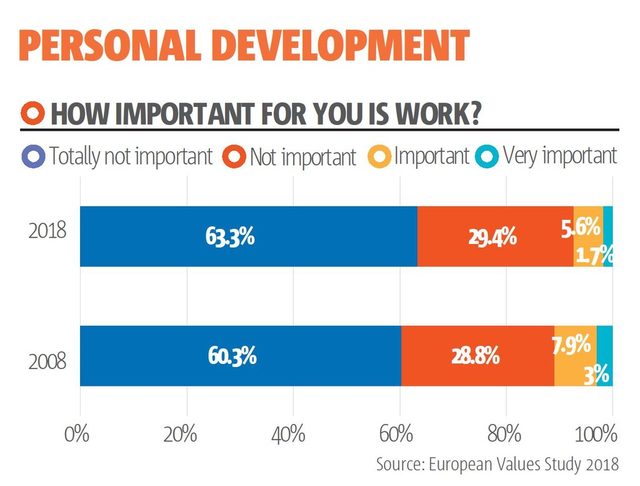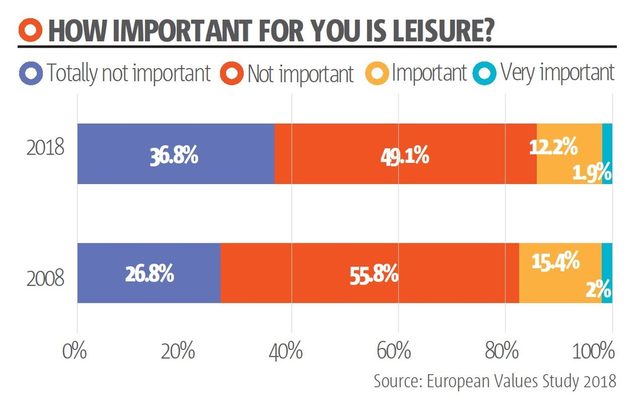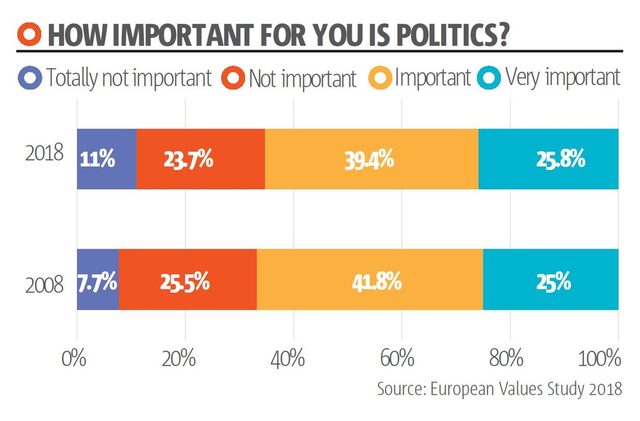There is a discernible tendency for a gradual increase in the confidence of Bulgarians in the last ten years. This happens on the individual, national, and pan-European levels - the feeling of personal fulfillment, national pride, and European belonging. This is the effect of the steady improvement in material well-being, as well as the normalization of social relations and democracy in Bulgaria after it joined the EU.
This is what the results of the new wave of the 2018 European Values Study, conducted by Alpha Research and New Bulgarian University, show. They are of special interest, because the previous survey was conducted right after Bulgaria joined the Union. If in 2008 democracy was evaluated as a good political system by 80% of Bulgarians, today, it has practically no alternative - it is supported by 93.3%. Accordingly, the trust in democratic institutions (political parties, government, etc.) has grown slowly, but systematically, as have democratic values in general.
Nonetheless, the opposite tendency exists too. Xenophobia and homophobia are on the rise. Aggressive populism and pro-Russian propaganda in Bulgaria have succeeded in channeling people's fears of the migrant crisis in Europe. In 2018, the number of people who believe that migrants import crime, has risen by 8%, and the number of those who believe migrants are a burden on the social system, has gone up by 20%. The influence of anti-liberal propaganda, which attacks cultural tolerance above anything, is nevertheless still limited to these specific departure points, and does not affect the overall positive tendency of growing support for European values.


The rise in confidence and democratic tendencies in Bulgarian society is linked to a certain kind of rationalization of one's attitude toward life. There is a rise in the perceived value of not just work, but free time and the relationship with friends as well.
The balance between the growth in confidence and the more pragmatic attitude toward life could be discerned in people's views on raising children and education. If today people consider themselves to be happier and value their work and free time more, then the same is transferred to their children - hard work, determination, perseverance, responsibility are not just the most valued virtues, which we want to teach our children, but in 2018 they record a rise in esteem of 3-4% relative to 2008.
The weight of tolerance as a basic European value also grows by 3%, and this is another aspect of the normalization of democratic relationships in our country.
Another notable feature is the drop in the value ascribed to imagination as a virtue, together with thriftiness - both fall by more than 4%. The improvement in the standard of living in the last decade has led to a partial decrease in the significance of thriftiness. Pragmatism prevails when it comes to imagination too, because before children can devote themselves to it, they need to learn to put their own backyard in order.
The importance of altruism as a virtue has suffered the sharpest drop (17%), which can also be partly explained with that same pragmatic attitude. Another influential factor is the general insecurity at the level of international relations, and especially the populist propaganda in the media, which systematically erodes the idea of universal human values, and particularly undermines trust in democracy and human rights as reliable regulators of selfishness in relations between individuals and between states.
The trust in the education system also shows a rise in pragmatic and realistic attitudes. The percentage of complete trust and complete mistrust both drop by 4%, while the share of more moderate assessments grows. It appears that its shortcomings are obvious to people, but this does not make them dismiss it completely.
* Prof. Dr. Dimitar Vatzov teaches philosophy at the New Bulgarian University. He is also chair of the Human and Social Studies Foundation - Sofia.
There is a discernible tendency for a gradual increase in the confidence of Bulgarians in the last ten years. This happens on the individual, national, and pan-European levels - the feeling of personal fulfillment, national pride, and European belonging. This is the effect of the steady improvement in material well-being, as well as the normalization of social relations and democracy in Bulgaria after it joined the EU.
This is what the results of the new wave of the 2018 European Values Study, conducted by Alpha Research and New Bulgarian University, show. They are of special interest, because the previous survey was conducted right after Bulgaria joined the Union. If in 2008 democracy was evaluated as a good political system by 80% of Bulgarians, today, it has practically no alternative - it is supported by 93.3%. Accordingly, the trust in democratic institutions (political parties, government, etc.) has grown slowly, but systematically, as have democratic values in general.













